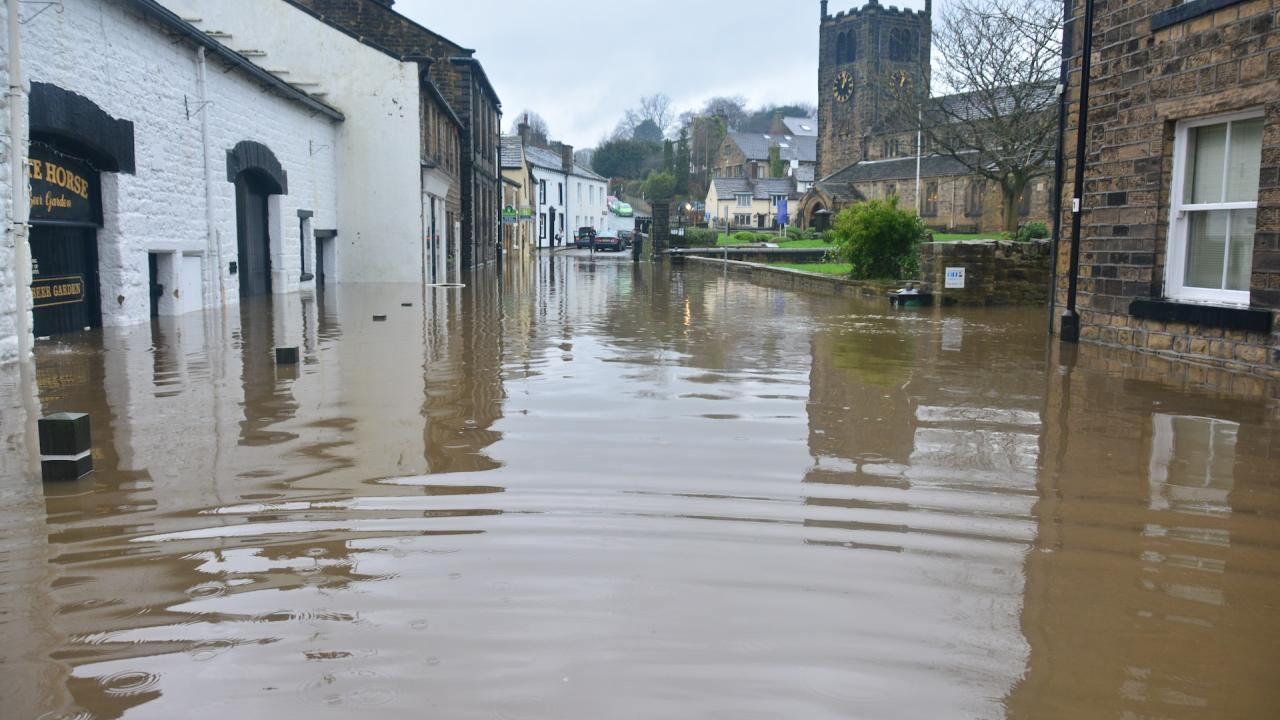This year, on 6 July, the Earth encountered its most scorching day to date, as the worldwide average temperature reached 17°C, following the hottest June on record. Likewise, during the summer of 2022 the UK recorded a record high temperature of 40.3°C, shattering the previous mark of 38.7°C. Following deadly flooding in Pakistan and elsewhere last year, Madrid’s underground transit system was flooded this month after Spain’s capital suffered its heaviest rainfall in more than 50 years.
So, with more weather extremes going on around the world, does our localised and personal experience of floods and heatwaves have an impact on how people think and act regarding climate change?
A new study from the University of Cambridge finds that while such personal experience increases climate change risk perception (defined as a belief that climate change will affect people in the UK within the next 30 years), it has no great effect on either climate change concern or pro-environmental behaviour, on average.
However, exposure to numerous consecutive heatwave summers “significantly” increases climate change concern and pro-environmental behaviour, in addition to boosting risk perception.
The authors conclude that policymakers should engage in risk communication campaigns focusing on geographic proximity in the months after flooding, while also highlighting the unusual frequency of heatwave events.
“While the determinants of public resistance to climate change policies are complex, highlighting the proximal nature, personal relevance and urgency for mitigation may sway the public debate to consider more ambitious policy interventions,” says the study published in the journal Environmental and Resource Economics.
The study is co-authored by Paul Lohmann of the El-Erian Institute of Behavioural Economics and Policy at Cambridge Judge Business School, and by Andreas Kontoleon of the Centre for Environment,
Energy and Natural Resource Governance and the Department of Land Economy, University of Cambridge.
"Especially noteworthy was the finding that individuals who experienced both the 2018 and 2019 heatwaves showed a marked rise in their perception of risk, concern for climate change, and a greater adoption of pro-environmental behaviours,” says co-author Paul Lohmann. “This suggests that the unusual frequency of these back-to-back heatwave summers may have played an important role in influencing public climate opinions.
"An important question to consider is whether people will become accustomed to more frequent weather extremes, particularly heatwaves, which many in the UK perceive positively due to Britain’s often cool and wet climate. If normalisation happens quickly, there might be a limited opportunity for risk communication to highlight the unusual frequency of such events."
The study focuses on England and Wales, drawing on climate change attitudes and environment-related behaviour from the UK Household Longitudinal Study (UKHLS) – which follows the lives of approximately 40,000 households in yearly intervals since 2009.
The authors utilised geographic information system (GIS) software to pinpoint the precise location of each UKHLS participant in order to connect them with spatial flood and temperature maps, enabling the study to ascertain individual-level exposure to flooding and heatwaves. The data excludes individuals with prior flood exposure (defined as living within 1,000 metres from a flood occurrence) to focus on those for whom floods are novel events. The authors define a heatwave as “having experienced at least three consecutive days with daytime maximum temperatures exceeding 29°C”.
Regarding flooding, the authors say: “Although it remains challenging to draw conclusions on the underlying mechanisms, a plausible explanation for our findings is that the closer an event is to one’s home, the more personally relevant and memorable it may be. Moreover, flood victims may be more likely to establish a cognitive link between the flooding and climate change and therefore perceive climate change as more certain, temporarily close and personally relevant.”
Regarding heatwaves, the study found that heatwaves in 2018 and 2019 were shown to cause significant risk perception, climate change concern and pro-environmental behaviour, whereas heatwaves in 2013 and 2017 had no such effect. One possible explanation: “The attention given to climate change in the media during the 2018 and 2019 heatwave events could have facilitated the updating of beliefs. Moreover, the unusual consecutive occurrence of these heatwave summers could have further reinforced the association with climate change.”
In conclusion, the authors suggest that climate events as flooding and heatwaves could be harnessed to raise awareness for future climate change risks.
“We recommend that risk communication campaigns in the wake of flood events should focus on the geographic proximity of events and highlight the link between the event and climate change to facilitate attribution. In turn, subjective belief updating brought about by well-targeted communication and engagement campaigns can facilitate the smooth capitalisation of climate risk in property markets and encourage adaptive behaviours such as insurance choices and defensive investments, consequently improving market efficiency and bringing about substantial welfare gains.”
The study – entitled “Do Flood and Heatwave Experiences Shape Climate Opinion? Causal Evidence from Flooding and Heatwaves in England and Wales” - is published in Environmental and Resource Economics.



